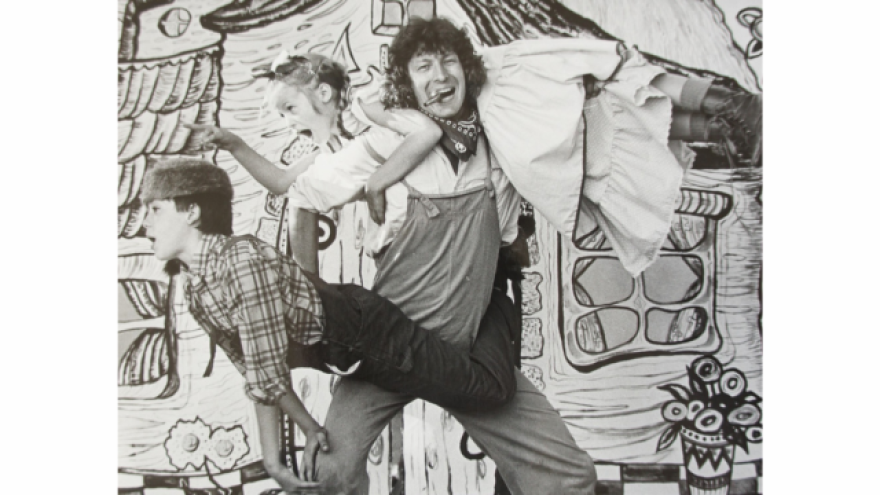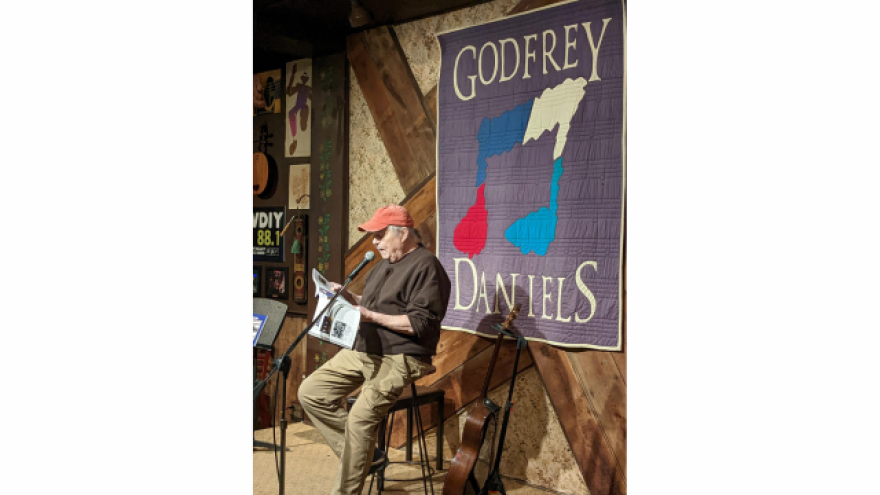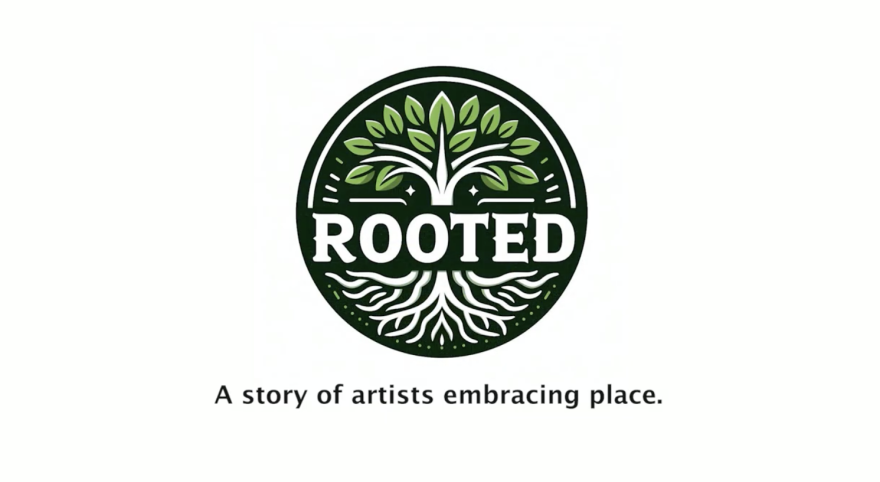BETHLEHEM, Pa. — A new documentary will shed light on the rise of arts and music in the city, around the time that the steel industry began to spiral.
Behind the development of the film is a group of artists and friends — Doug Roysdon, of the Mock Turtle Marionette Theatre; Dave Fry, of Godfrey Daniels Folk Music Club; Bill George, co-founder of Touchstone Theatre; and his wife Bridget George, of the Bach Choir of Bethlehem and Touchstone Theatre.
The 90-minute film is slated to debut at the 2025 Southside Film Festival in June and will be directed by Aidan Gilrain McKenna, an independent filmmaker and graduate of Liberty High School.
The four friends appear in the film and share stories of how they shaped the arts scene, starting in the mid-1970s.
Also featured in the documentary are interviews with Kashi Johnson, chairperson and professor of the Department of Theatre at Lehigh University; Greg Funfgeld, 39-year artistic director and conductor at the Bach Choir of Bethlehem; Cuban artist Ricardo Viera, a professor at Lehigh University and co-founder of the People’s Theatre Co.; and the late Barbara Pearson, who also co-founded the People’s Theatre Co.

Thanks to their efforts, and almost 50 years later, more than 30 new cultural nonprofits, galleries, and festivals have emerged in the city — including Musikfest, which was once a small community gathering and is now the country’s largest free music festival.
“Some of the community members [have died] or they're getting older, so it was time where we need to not just record what happened for the sake of our cultural, historical memory, but also to honor the work that was done and what happened,” Bill George said.
Debuting in 2025
McKenna has filmed more than 100 hours of interviews and will start shooting the second part of the project the first week of September.
To honor their work, and the venues where those artists emerged, there will be seven tree planting ceremonies that McKenna will document for “Rooted.”
The first ceremony, a planting of a shadblow serviceberry tree, will occur at Central Moravian Church and will be dedicated to Funfgeld and the Bach Choir of Bethlehem.
“Nothing happens by itself. We stand on the shoulders of the Moravians, the first that came here,” Bill George said. “The Bach Choir is absolutely crucial to the growth of the arts here in the Valley. It is the mother organization of it all.”
There will also be tree plantings and dedications at Yosko Park, Godfrey Daniels, the Charles A. Ice House performing center on Sand Island, Zoellner Arts Center and Touchstone Theatre.
Be a part of ‘Rooted’
An open invite for community members who wish watch part of the filming will occur outside of Payrow Plaza at 4:30 p.m. on Saturday, Sept. 7.
Attendees can meet the film’s director and cast at the celebration and planting of a royal star magnolia tree.
"The need to respect and see the poetry of where we live was important then and it's important now."Bill George, co-founder Touchstone Theatre
The film’s budget is estimated to be around $50,000 and a campaign for donations will begin in the fall, George said.
“The challenge to tell this story is that it’s not just one person or even four, but we had to keep it down to a limited number of people, but really hundreds of people were involved and everyone would tell the story in different ways,” he said.
After its debut, “Rooted” will be housed at the Special Collections branch of the Lehigh University Libraries.

Continue to support local arts
Bill George, who co-founded Touchstone Theatre in 1981, touched on the collaborative spirit and sense of selflessness that existed some 50 years ago.
It was a time when small arts blossomed, thanks in part to government funding and emerging state arts councils.
But more importantly, he said, it thrived thanks to support from residents and visitors alike, who attended performances at places like Touchstone and Godfrey Daniels.
“There’s a line in the film, which is one of my favorites, that says, ‘it's amazing how much you can accomplish if you don't have to take credit for it.' The film is about the fact that nothing has changed. The need to respect and see the poetry of where we live was important then and it's important now,” Bill George said.
“These were powerful things that helped pull us from that place of where things were run down, to this place where they're not nearly as run down at all. The purpose of the movie is to shine those lights, so that people can understand that we don't want to go back to the way things were before. We want to continue this effort.”


